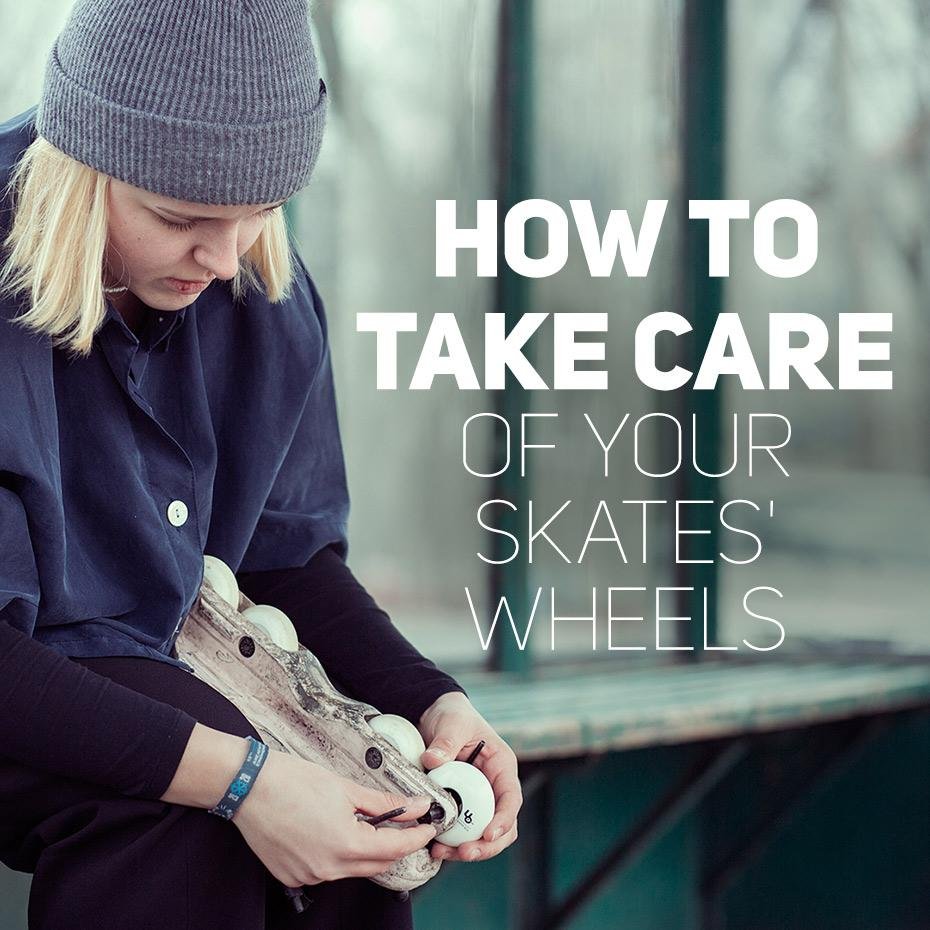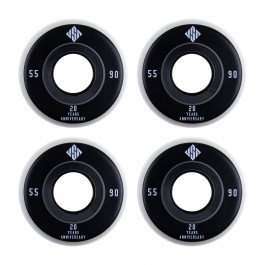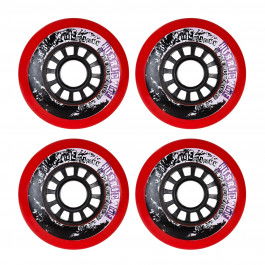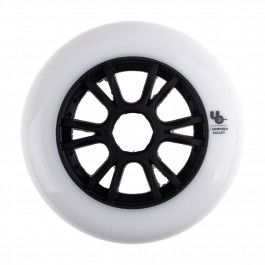Wheels handled with care equal more fun on skates!
Without a shadow of doubt, wheels are the fastest wearing of all skate components. There is no escaping it – even the best wheels on the market must be replaced one day for a set of new ones. Urethane is meant to be left on the asphalt and concrete, but not all wheels wear down equally and at the same rate. There are a lot of factors having impact on how long a set of wheels will last:
- Urethane compound used to make the wheel
- Hardness and profile (elliptical profile wheels wear down faster than round or flat profile ones)
- How frequently you skate
- Braking technique (T-stop speeds up the wheel wear process)
- Skater’s weight
- Skating technique and discipline
- Types of surfaces we skate on
No matter the above, the wheel model and skating style, there is one trick to make your wheels last longer – rotating their positions regularly.
Skating technique and braking cause wheel wear to always follow these three general rules:
- Wheels always wear more on the inner “edge” – push and T-stop braking technique both require shifting weight on the inwards facing side of the skate.
- Wheels in skate which you T-stop with will always wear faster – as most people use primarily one leg to brake with this technique.
- The outer wheels in the frame always wear faster than middle ones. This is because of lean forward position while skating and shifting weight during quick turns.
How to take care of your wheels?
To make sure your wheels will last as long as practically possible, you should make sure that they wear down evenly and avoid situation in which one side will wear too much. If wheel is worn down beyond the geometrical centre of its width, it will still have plenty of urethane left, but even if you swap the sides, it will no longer offer the same stability and skate will lean to one side.
Because no all wheels wear at the same rate and in the same fashion, you should never just swap their sides in their positions in the frame. Even if only one wheel has become too worn on one side, it is necessary to do a full rotation, like on picture below.
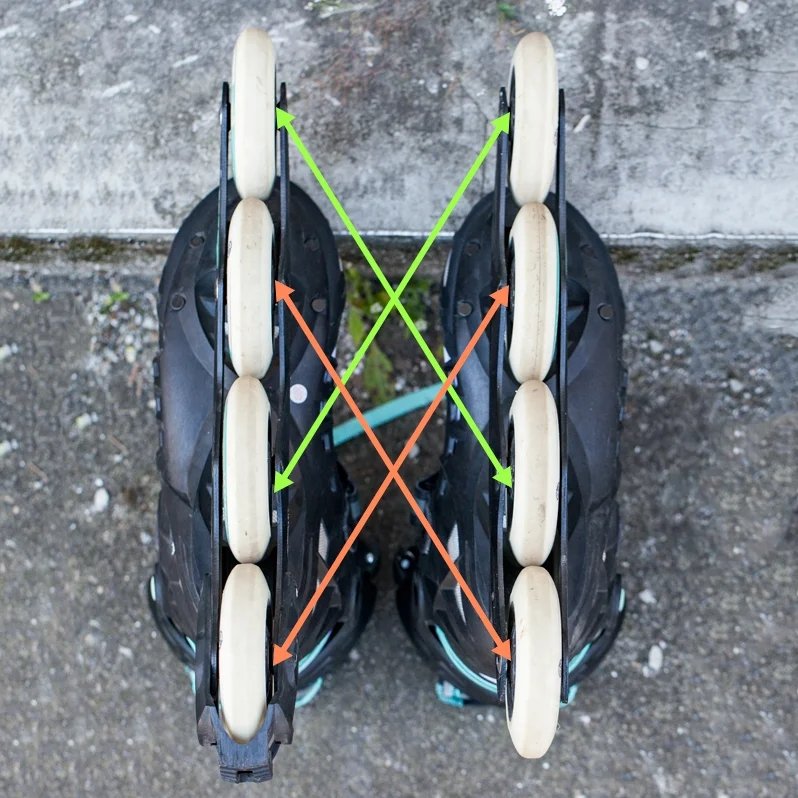
Rotating the wheels using this scheme ensures that:
- The outer wheels are moved to second and third position, where they won’t wear as much
- Inner wheels, which are worn the least, are moved to outer positions replacing the most worn ones
- By swapping the wheels between skates, you are placing their more worn side outwards
Following this simple rule have excellent results – the wheels may last even twice as long thanks to even wear of all of them, in both skates.
It is a bit trickier in triskates. Basic scheme is as below:
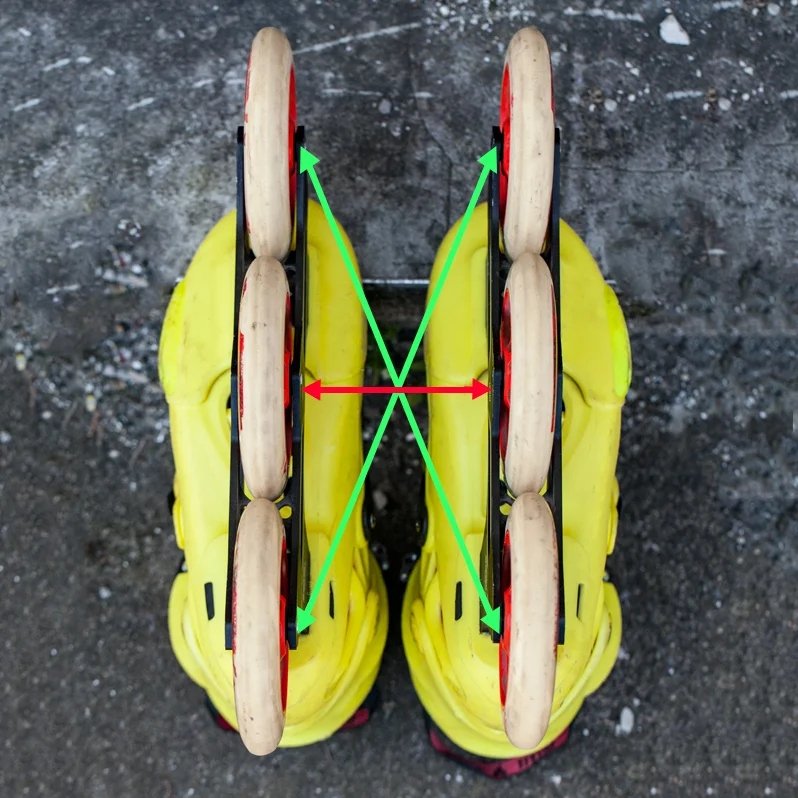
When you need to rotate the wheels?
- If the profile of one of the wheels is not symmetrical and obviously more worn down on one side.
- If outer wheels can spin freely after placing the skate on flat surface. Of course, this does not apply to rockered setups.
- If you feel during skating that one of the wheels tend to sidetrack slightly or forces incorrect position of the ankle.
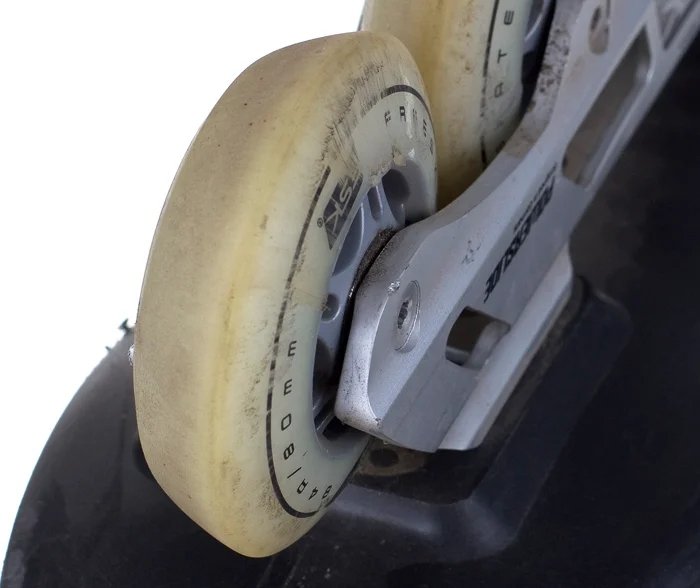
Choosing right wheels for your skating style is necessary for comfortable, fun and efficient ride. Taking care of them by following the rotation routine makes sure they’ll last you longer and will be more fun to use. Last but not least – longer lifespan of wheels means budget savings for you!


